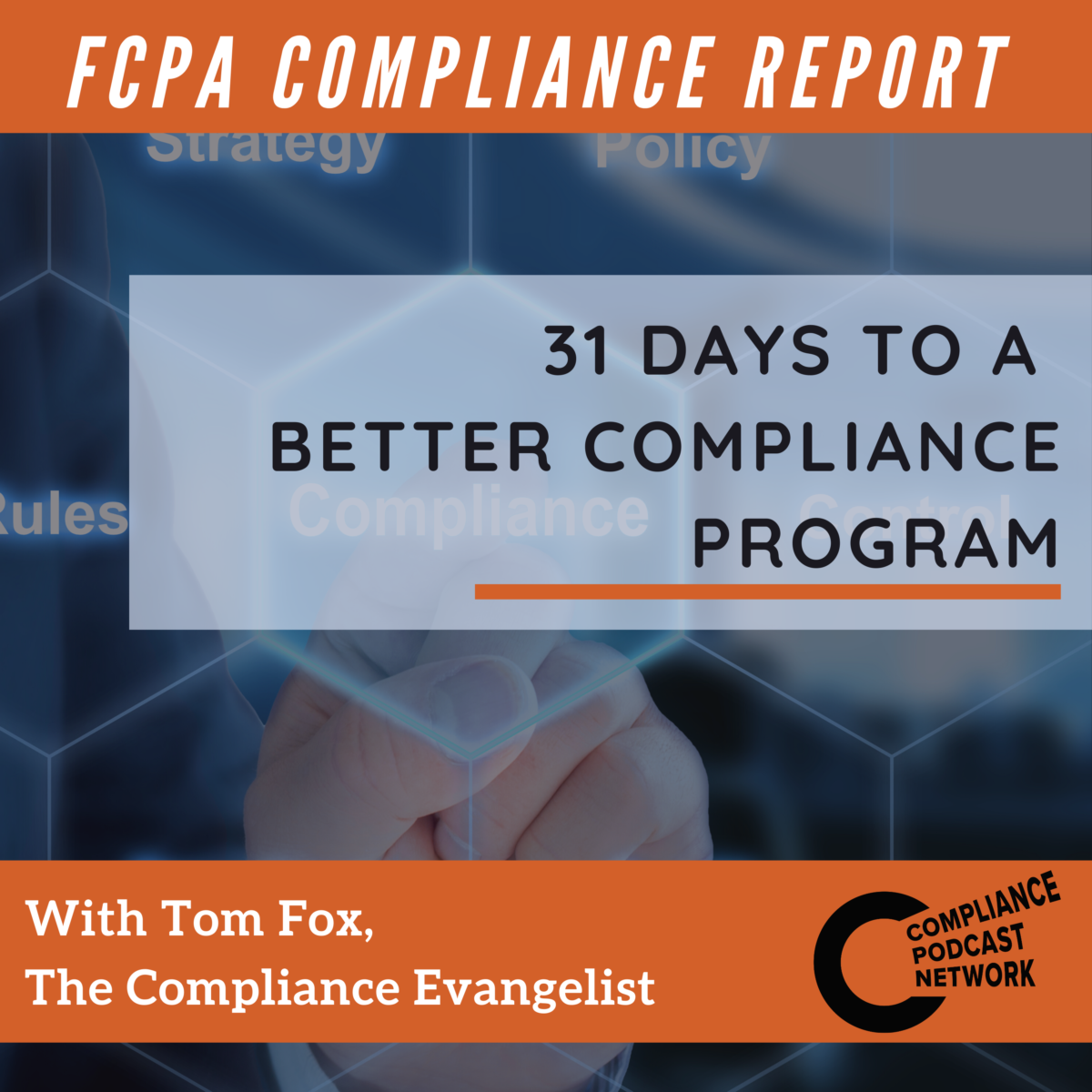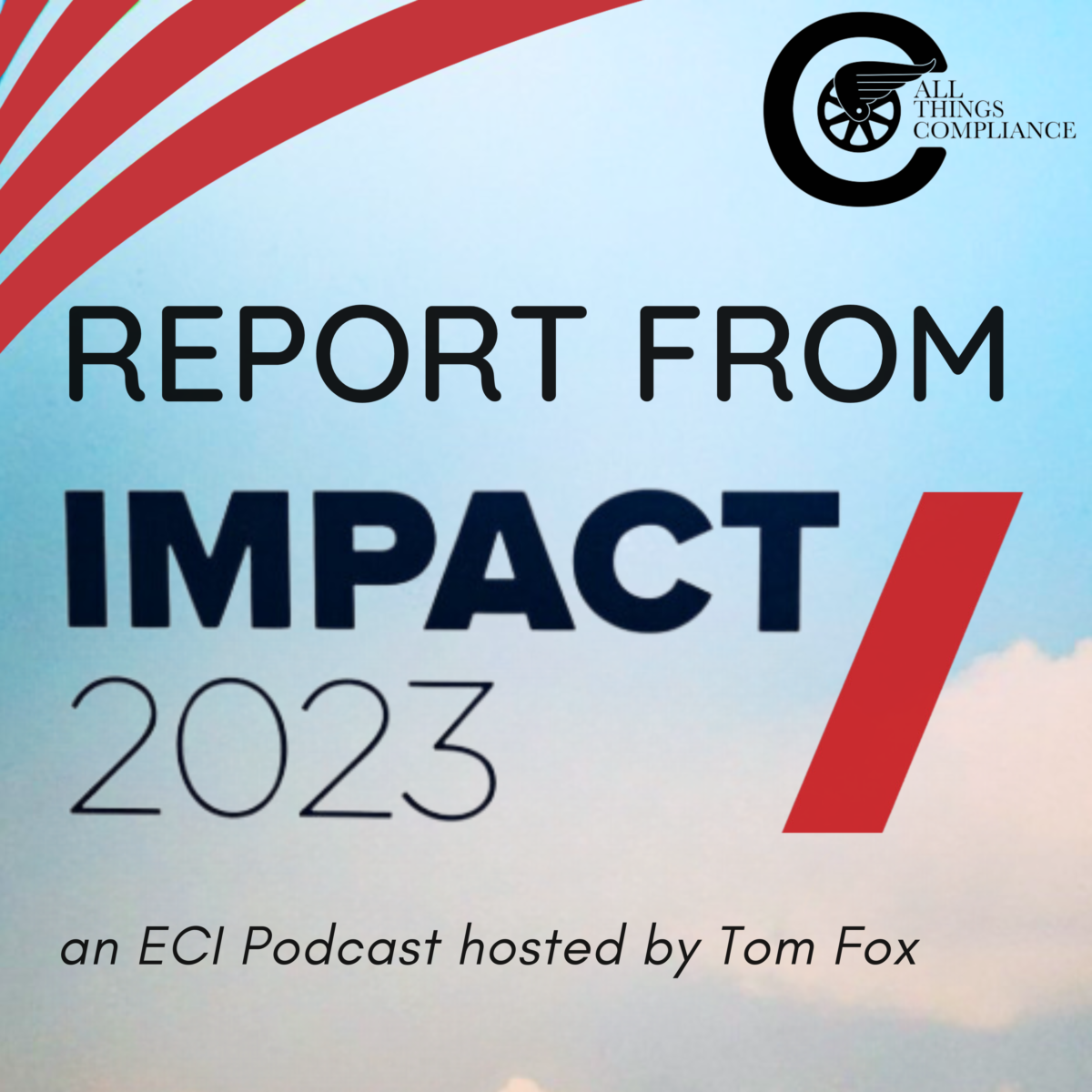I recently concluded a podcast series with Case IQ. Over this series, I visited with Sharlyn Lauby, Jakub Ficner, Kenneth McCarthy, and Meric Bloch on the different facets of a great speak-up regime and how each of those facets will improve your corporate culture. We tackled such topics as the indicia of a great corporate culture, the importance of triage and internal investigations in improving corporate culture, non-retaliation and protections for those who speak up, tying your entire system of speaking up to improving culture, and will conclude with some thoughts on how an entire system of speaking up drives corporate culture to be better run and, at the end of the day, more profitably. This blog post series will expand on these topics. In Part 1, I visited with Sharlyn Lauby to learn about the speak-up culture.
Sharlyn is the author of HR Bartender and president of ITM Group Inc., a Florida-based training and human resources consulting firm focused on working with companies to retain and engage talent. She sees human resources as a strategic partner—the marketing department for a company’s internal clients—rather than an administrative one. During her 20+ years in the profession, she earned a reputation for bringing business solutions to reality. Her areas of expertise include organizational development, training, employee relations, and job design. She has a broad knowledge of workplace social media, strategic planning, and recruitment. And I’m skilled in new program design, project management, and human resources compliance.
In this concept of fostering a speak-up culture, we explored the workplace. A speak-up culture is a work environment where open communication is encouraged, fostering trust and innovation. This culture is built on leadership that values listening and employee involvement in problem-solving. One of the key factors in fostering a speaking-up culture is protecting employees from retaliation. Anti-retaliation policies and procedures, training for middle managers, and a consistent, transparent process for investigating concerns are crucial to maintaining this culture. The fair process doctrine, which emphasizes transparency, consistency, and protection from retaliation, plays a significant role in building trust, encouraging engagement, and enhancing the overall organizational culture.
Sharlyn highlighted the importance of addressing negative concerns and encouraging employees to share their ideas with management. When employees feel empowered to contribute their ideas, it can lead to significant positive outcomes for the organization. Sharlyn shared a powerful example of an organization that faced a budget challenge and involved employees in finding solutions. By offering incentives for revenue-raising or cost-saving ideas, the company not only met its budget goals but exceeded them, generating $5 million in savings. This story illustrates the potential for great things when organizations listen to their employees and value their input.
However, fostering a speak-up culture goes beyond just listening. It requires implementing policies and procedures to protect employees who have the courage to speak up. Employees need to feel confident that their concerns will be taken seriously and properly investigated. This is crucial for building trust and ensuring that employees feel comfortable bringing forward their concerns. Retaliation should never be tolerated, and organizations must make it clear that it will not be accepted under any circumstances.
Middle managers play a vital role in fostering a speak-up culture. They need to be trained to listen, accept information, and report it to the appropriate channels. Middle managers should also support employees throughout the process, helping them navigate any challenges they may face. Building relationships with managers is essential, as it encourages open communication and creates an environment where managers feel comfortable seeking guidance when needed.
Consistency and transparency in the investigation process are also key components of a speak-up culture. Organizations must have a clear process in place for investigating concerns, and employees should be aware of this process. When employees know that their concerns will be taken seriously and investigated, it builds confidence in the organization and encourages them to speak up when necessary.
The Department of Justice has emphasized the importance of consistency and transparency in investigations, as they contribute to institutional justice and fairness within a corporation. Organizations must communicate to employees that concerns will be thoroughly investigated, regardless of the number of ongoing investigations at any given time. This ensures that employees feel heard and that their concerns will be addressed appropriately.
In conclusion, fostering a speak-up culture in the workplace is crucial for building trust, encouraging engagement, and enhancing the overall organizational culture. It requires leadership that values listening and employee involvement, as well as policies and procedures to protect employees from retaliation. Middle managers play a vital role in supporting employees and facilitating open communication. Consistency and transparency in the investigation process are essential for building trust and ensuring that employees feel comfortable bringing forward their concerns. By fostering a speak-up culture, organizations can create an environment where employees feel empowered to contribute their ideas and make a positive impact on the workplace.
Join us tomorrow when we take up non-retaliation and protections for those who speak up.
Listen to Sharlyn Lauby on Innovation in Compliance here.








